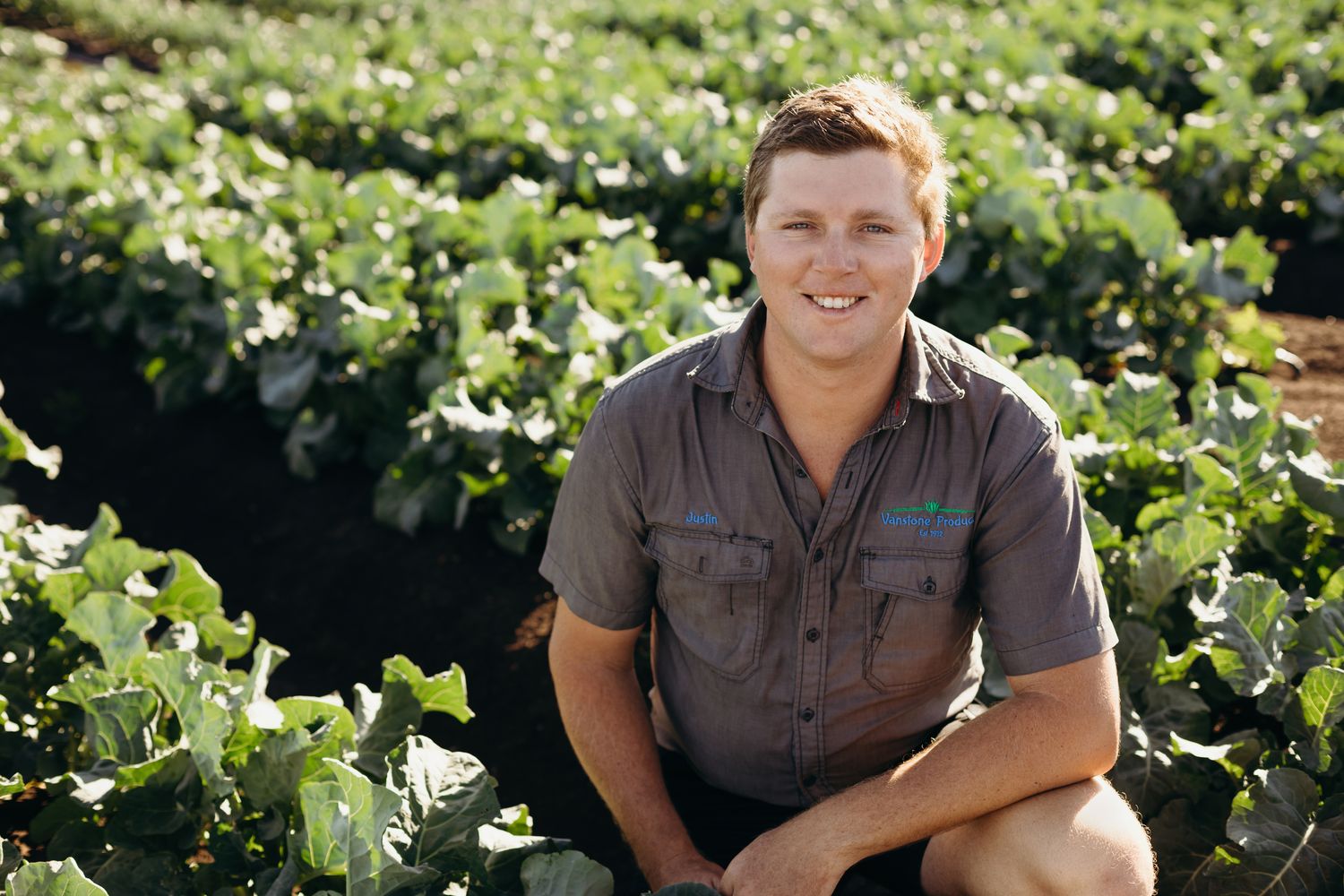
Levy-funded research investigates more effective pathways to management of parsley summer root rot
29 January 2019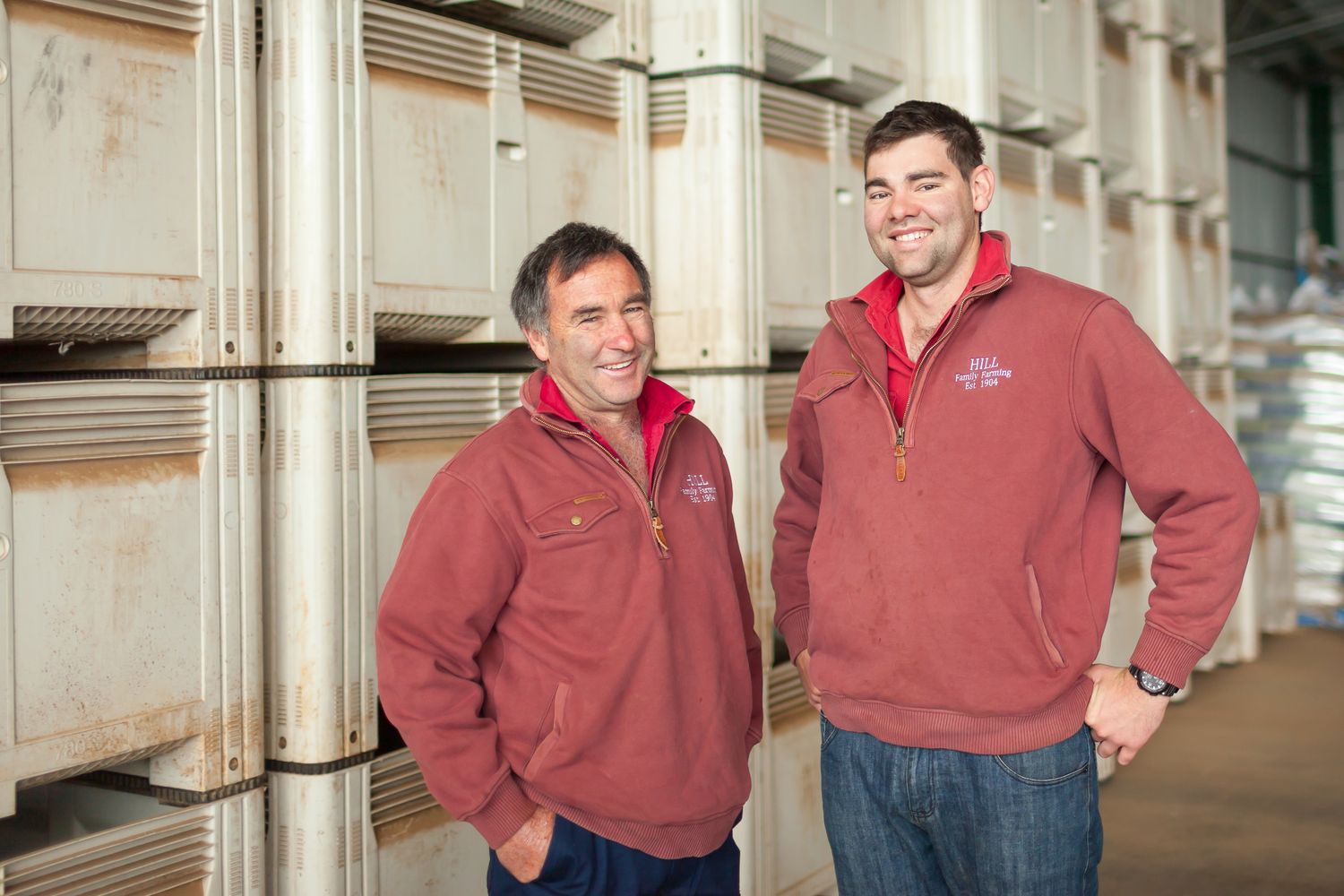
Hill Family Farming: Introducing the next generation of potato growers
30 January 2019Justin Vanstone is a 26-year-old grower from Vanstone Produce in Crowley Vale, Queensland. We profiled him in the January/February 2019 edition of Vegetables Australia magazine.
Fast facts
Name: Justin Vanstone
Location: Crowley Vale, Queensland
Works: Vanstone Produce
Grows: Shallots (spring onions), silverbeet, broccoli, Broccolini (Perfection Fresh Australia) and pumpkin
How did you first become involved in the vegetable industry?
I am the fourth generation of farmers in our family. Our family started farming in 1912 at Rochedale, Queensland, which was the farm that I grew up on. In 2004 (due to housing developments), our parents purchased two farms in the Lockyer Valley and started vegetable growing in 2008. I now own one of those farms with my brother Zac.
From 2009 until I finished school in 2013, I was not full-time on the farm. However, in late 2013 Zac and I approached our parents to work out a way for us to become more involved and work towards owning the farm and the business ourselves.
It wasn’t until early 2015 that we managed to officially own the farm in our names, and at the same time, purchase a neighbouring farm. During that period, our parents also got divorced which made our transition into the business and the farm a little more challenging.
What does your role as Managing Director at Vanstone Produce involve, and what are your responsibilities?
Overall my brother and I are both very hands-on in all aspects of the business, but over the past 18 months we have split the day-to-day responsibilities to give us a greater focus on different things.
Zac communicates with our customers regarding orders and quantities, which goes hand-in-hand with the management of picking and packing staff, along with the logistics of getting those deliveries to our customers on time with the correct quantities.
I spend a lot of my time on the growing side of the farm, which still naturally has to go with the picking and packing because if there’s nothing to pick, there’s nothing to pack.
But generally, I maintain an oversight and ensure all aspects of our business are working as smoothly as possible.
Other family members are also involved in the farm. What are their roles, and how do they support you?
On the farm now are our youngest two siblings, who have come to work in the business since finishing school. Our sister Johanna works in our pack shed overseeing packing and order fulfilment, while our brother Brent generally works outside. His main tasks are tractor work and irrigation.
Our father Ross has stayed involved on the farm to some extent since 2014. Today, he generally helps out on planting days and does some general maintenance around the farms.
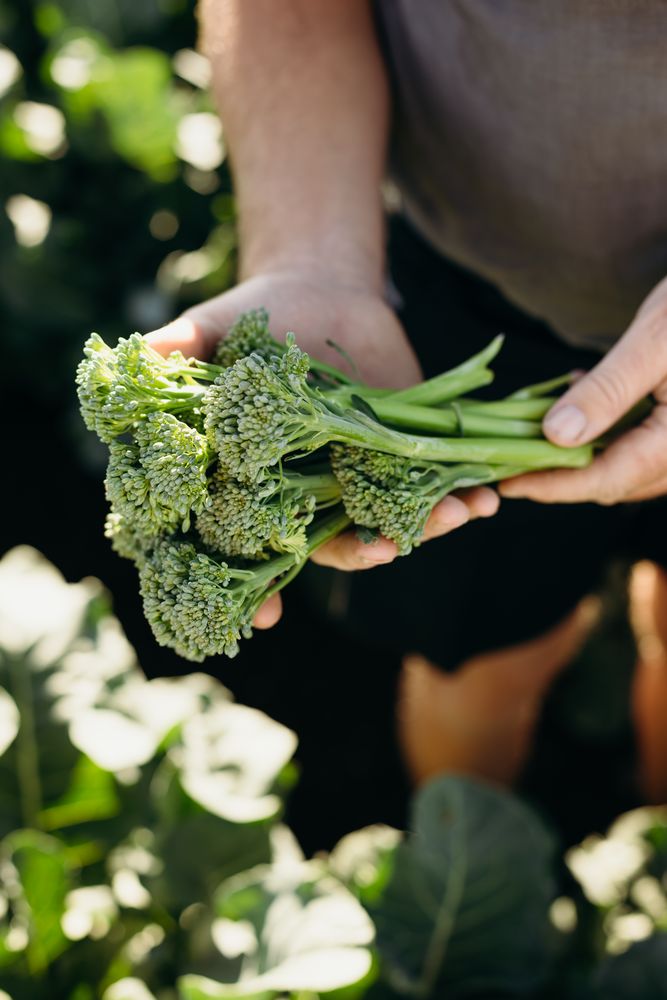
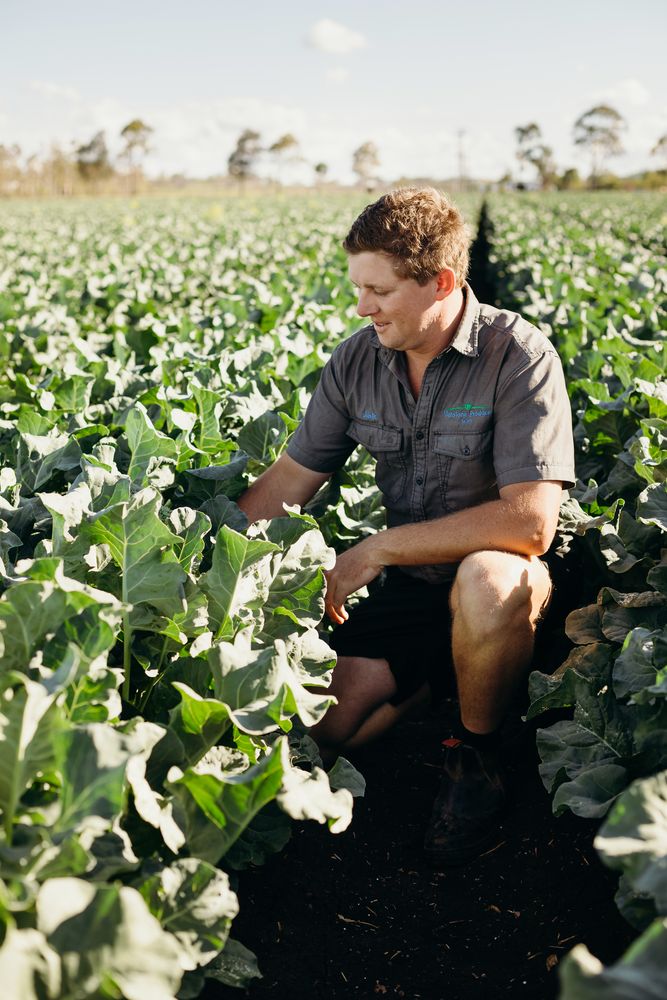
What are the biggest challenges you face working in the industry and how do you maintain your enthusiasm?
Every day presents a different set of challenges which keeps things interesting.
There have been a handful of things that are a constant challenge of late; for example, input costs are going up while sales prices are staying the same or coming down.
Overall the weather is a big factor as it always has been (and more than likely always will be), but we cannot control that.
Finding good staff and the cost of labour is by far our biggest ongoing challenge, especially in the labour-intensive crops we grow.
Changes to water licencing and allocations is probably our biggest new concern. The draft water plans were released in recent months and it is already affecting not only ourselves but many other farms in our area. Multigenerational businesses engrained in the Lockyer Valley for much longer than ourselves all of a sudden have become potentially unviable with one change by a government. Hopefully our state government will see some sense in the new year and come up with a solution for our area which will achieve desired outcomes, without affecting the sustainability and viability of the farms.
You recently joined the Lockyer Valley Growers Inc. committee. What was the motivation behind your decision?
Since joining the grower’s group in 2015, I have seen the group’s ability to organise meetings and events with great attendance and an increasing number of members. I generally just wanted to get more involved in the industry and hopefully I have something that I can add to the group.
How important is Lockyer Valley Growers Inc. to the local vegetable industry?
I believe the group is growing in its importance and becoming an asset for the entire growing area. It is a great tool for farmers, with many workshops and events organised through the group that provide a number of benefits to everyone that may otherwise pass them by.
Many workshops and events that are organised can be a source of information, covering everything from spray workshops to workplace health and safety. Events like this can be great for receiving information and even having key staff attend.
"We have been extremely lucky to have great neighbours and other growers close by who are always open and willing to answer any questions we might have as well as lending a helping hand when we need it."
In your opinion, how important are grower groups to the wider vegetable industry?
I believe a grower’s group for any farming region will become a great asset. Perhaps it’s not a financial asset or a marketing tool (I don’t believe a grower’s group would be effective and sustainable if it became a business marketing tool), but it gives the growers a common group that has the ability to communicate with other aspects of the industry and provide feedback or local information to those parts of the industry that might otherwise be hard to ascertain.
Where do you receive your on-farm practice advice and information from?
With the Lockyer Valley being such a great vegetable growing area, all of the local businesses have a great wealth of knowledge that we can lean on with help and advice about almost anything farming related.
We have local agronomists from the resellers in town that provide us with an invaluable level of local knowledge and information we can trust.
For ourselves personally, we have also been extremely lucky to have great neighbours and other growers close by who are always open and willing to answer any questions we might have as well as lending a helping hand when we need it.
What new innovations, research and/or practices has your business implemented recently? What are you doing different to other growing operations?
I don’t know if I can say that we do anything drastically different to any other operation as we are all facing the same challenges. However, we are constantly trying to improve our processes and the level of efficiency in our business. This includes trying to adopt technology that will help on-farm, or new gear or farm equipment that can reduce input costs.
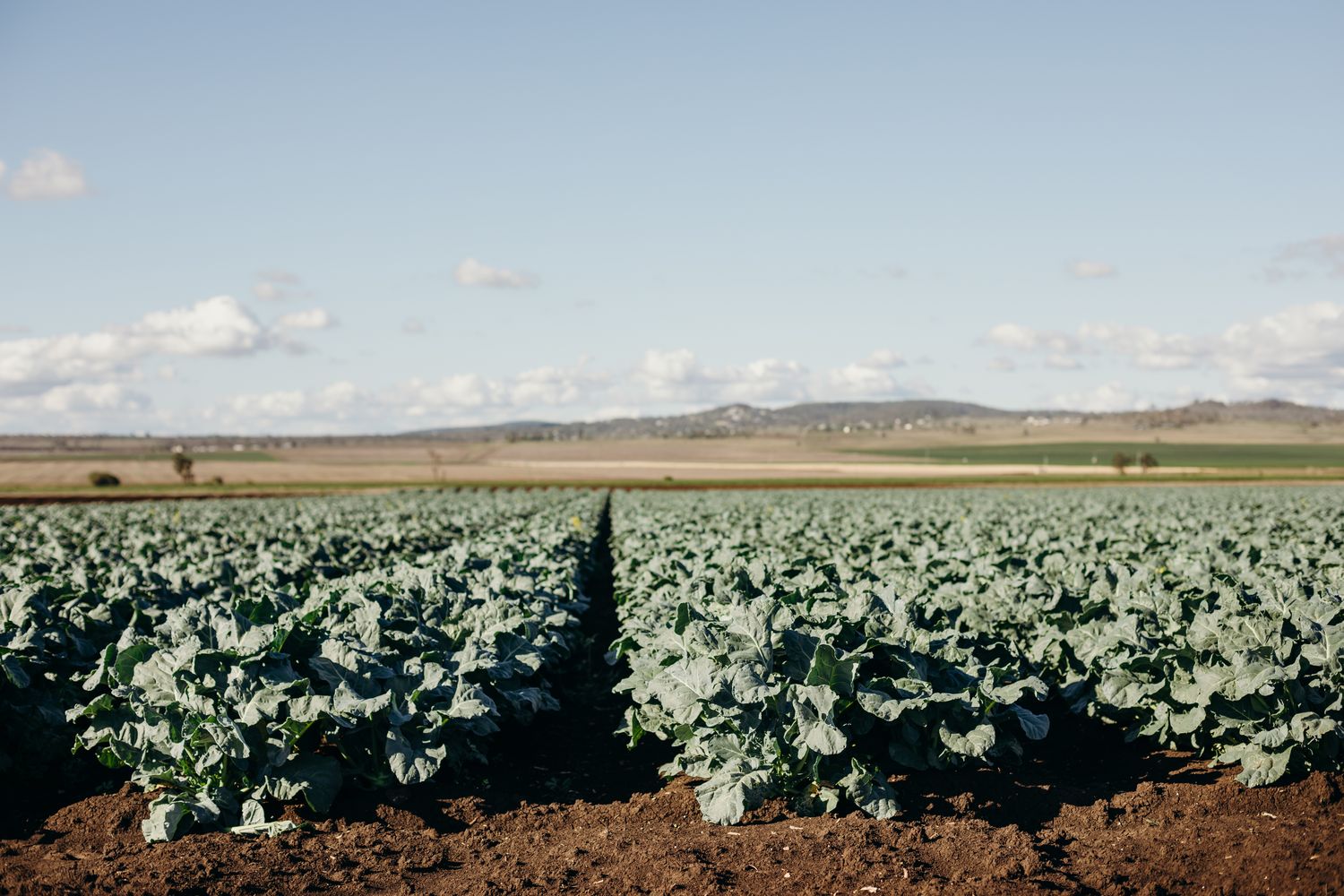
Where do you see opportunities for growth in the Australian vegetable industry?
The obvious answer is in international markets, but we have to make sure that we are competitive on a global level for that to be a sustainable pathway for the industry.
The second answer is probably in more convenience/pre-prepared and pre-packed lines as that is where customer demand is heading. The two may even go hand-in-hand. While domestically there is a demand for the convenience lines, I am sure there will become an increasing demand for Australian grown and pre-packed convenience products internationally as well.
Where do you see yourself in five years?
We have started exploring the possibility of exporting any of the products we currently grow and whether there is a market for them internationally. We would be hoping to grow that section of our farm.
We have been working on a full 12-month supply of all of our crops and this summer will be our first of growing brassicas outside of the Lockyer Valley, so we will be hoping that works well for us and we can also expand on that.
Generally, we would like to continue to keep building on our relationships with our current customers and hopefully find some new ones. The backbone of our business is our family’s history of supplying directly to Woolworths (more than 58 years), so I hope that relationship can continue to grow over the coming years.
How do you think more young people could be encouraged to study and take up jobs in the vegetable industry?
I guess this question is two-sided from my point of view: there is the industry that runs parallel to the actual vegetable farming operations, such as the crop protection companies, the government bodies, the research and development institutes and the suppliers to the industry, of which I am sure there is plenty of opportunity and demand for young people and women.
Then there are the farms and the farming businesses on our side of the industry. I believe many people would be interested if they knew what opportunities there were – many people still have preconceived assumptions of farming in general, which in my opinion do not apply to the vegetable growing industry. With 365 days a year of supply, growing and packing operations are different to what some people may think.
More particularly on our farm and business, we have around 10 ‘young’ people in key roles in the business, and four are women. The opportunities are there – you just need to put your best foot forward.
To be more specific, we have had a few people approach us looking for work after completing their studies in agronomy, of which they are naturally looking for a full-time position. But on a farm our size, we don’t necessarily have a full-time role in that capacity. Although if that particular person was open to the idea of a part-time agronomist or part-time spray operator, it may open the door to greater opportunities.
This grower profile first appeared in the leading magazine for the Australian vegetable industry, Vegetables Australia, and was featured in the AUSVEG Weekly Update published 5 February 2019. If you’d like to subscribe to receive a new edition of Vegetables Australia in your mailbox every two months, use our online subscription form!
Photography credit: Rowena Dione

